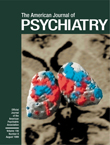Air Disaster and Posttraumatic Stress Disorder
To the Editor: In their prospective study, Richard S. Epstein, M.D., Carol S. Fullerton, Ph.D., and Robert J. Ursano, M.D. (1), cursorily mention preexisting mental traits, the quality and degree of exposure to trauma, the level of social support, and posttraumatic stress as having been identified as risk factors for posttraumatic stress disorder (PTSD) in previous research.
However, they ignore important aspects of the 1988 Ramstein disaster. Ramstein Air Force Base is located in Germany. The subjects examined were not part of the affected community and represented a minority of the German population; they were U.S. military personnel living in a ghetto-like situation with limited social intercourse, and they were not unequivocally accepted by the German civilian population. Could the impact and subjective meaning hereof be irrelevant to pre-traumatic self-perception and mental status?
The majority of spectators and casualties were German civilians—i.e., members of a sociocultural entity different from that of the U.S. health care workers. There were considerable problems in coordinating the efforts of local rescue forces with those of the U.S. military during evacuation. These factors certainly influenced the perception of, and reaction to, the traumatic event.
Subsequently, local media condemned the operation. Instead of being regarded as highly competent professionals whose “heroic efforts” saved many lives, the U.S. health care workers were confronted with criticism within the German community, thus more likely than not imposing specific demands on posttraumatic coping strategies.
1. Epstein RS, Fullerton CS, Ursano RJ: Posttraumatic stress disorder following an air disaster: a prospective study. Am J Psychiatry 1998; 155:934–938Link, Google Scholar



